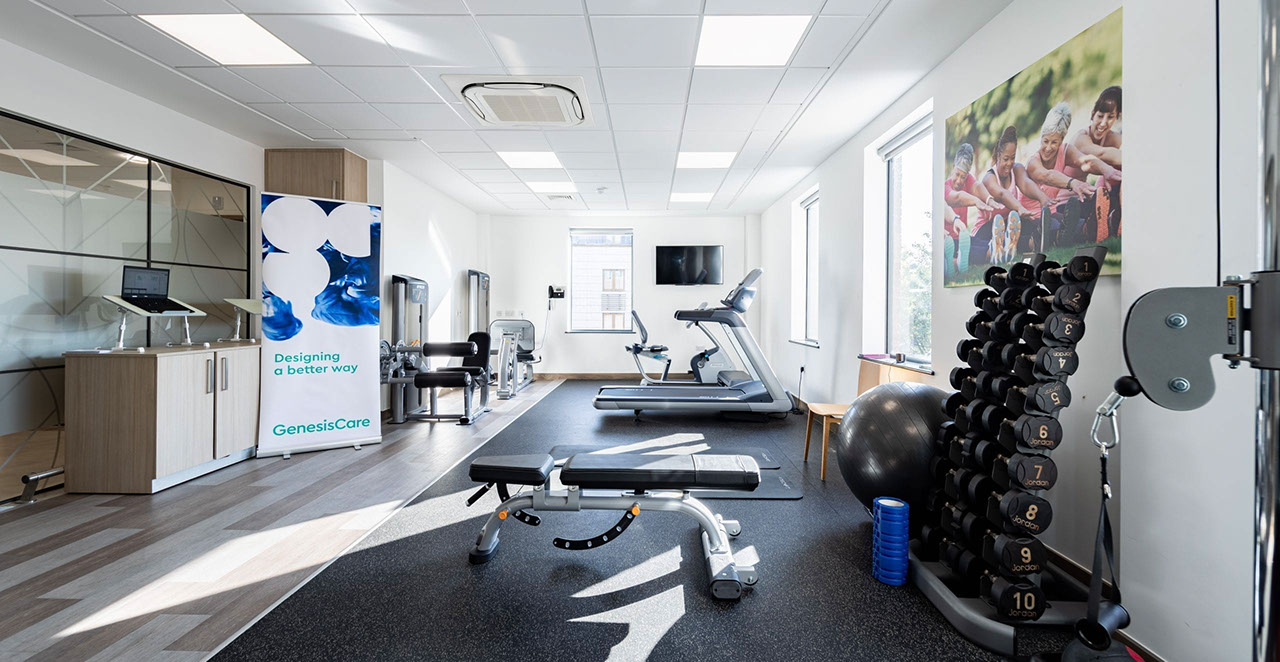- Patients
- Cancer treatments
- Radiotherapy
- Neuro-oncology

Neuro-oncology
We are proud to offer a world-class service for stereotactic radiosurgery (SRS) and other treatments for tumours of the brain and spinal cord, with leading expertise and cutting-edge technology.
A world-class service
We are proud to offer a world-class service for tumours of the brain and spinal cord and we focus on the use of proven techniques that diagnose and treat tumours, while preserving healthy brain tissue.
We are a specialist provider of neuro-oncology and a centre of excellence for stereotactic radiosurgery – an advanced ‘brain-sparing’ radiotherapy approach for brain tumours. It is recognised for its ability to preserve quality of life in people with brain metastases (cancers that have spread to the brain).
Your consultant will be supported by an expert team of specialist oncologists, therapy radiographers, neuroradiologists, medical physicists and neuro clinical nurse specialists. This multi-disciplinary team will discuss your symptoms, expected outcomes and potential side effects before recommending a unique treatment plan specifically designed for you. Your referring consultant can be involved in all treatment decisions and multidisciplinary team meetings too.
Our neuro-oncology service is provided at our centres in London and Oxford and is available to all of our patients throughout the UK.
Book an appointment
Contact us today to find out more about our neuro-oncology service and how we can help you
Stereotactic radiosurgery
Stereotactic radiosurgery (SRS) is central to our neuro-oncology service at GenesisCare. Despite its name, it isn’t actually surgery – it doesn’t involve any incisions and is virtually painless. It’s an advanced radiotherapy technique that precisely delivers multiple beams of radiation to a tumour in one single treatment session. It can improve treatment outcomes for small brain tumours or some non-cancerous (benign) brain conditions.
There are three main advantages of stereotactic radiosurgery (SRS) over conventional radiotherapy:
- Single treatment
With conventional radiotherapy, you may need as many as 10 treatments. But with SRS, the radiation is far more powerful and can be delivered in three to five doses, or even a single dose. This allows you to get on with your day-to-day life without having to factor in multiple trips for treatment sessions. - Less likely to need conventional surgery
In many cases, SRS can be used in place of having conventional surgery. This means no invasive treatment, no scarring, a quicker recovery period and little risk of infection. - Reduced side effects
Increased accuracy means that the radiation beam is less likely to hit your healthy tissue – and so less likely to cause long-term side effects – than with conventional radiotherapy. Several studies have shown that this can help to preserve everyday cognitive function and an improved quality of life after treatment.
SRS can be delivered using many different advanced technologies. We use a linear accelerator (linac) and X-ray radiation at our centres in Oxford and London. Our centre in London also has a Gamma Knife which uses gamma rays. Both these techniques are effective in treating brain metastases, but there are some differences in the planning and treatment for each.
Follow the links below to find out more about stereotactic radiosurgery.
Advanced imaging
Functional MRI and diffusion tractography
We offer functional magnetic resonance imaging (fMRI) – an advanced imaging technique that shows up the areas of your brain that are responsible for vital functions such as speech, movement and other behaviours. As with a traditional MRI, fMRI is painless and non-invasive. During an fMRI scan, you will be asked to perform a series of tasks, such as completing a sentence or moving your fingers. The scanner is able to detect small increases in blood flow in the regions of your brain that are activated when you perform these tasks. At the end of the scan, you will have a map of your brain showing the regions that are important for different physical and mental functions.
fMRI is often used alongside a similar MRI test called diffusion tractography. This imaging technique shows how fibres are orientated within the brain, meaning nerve pathways and connections between regions can be mapped. By adding the information from the fMRI and diffusion tractography together, your doctors build an exceptionally detailed map of your brain and an understanding of where your tumour lies in relation to these structures.
These techniques make it possible to predict treatment outcomes and plan it in specific ways that limit side effects by avoiding these important brain areas and pathways as much as possible. We work with specialist radiographers and neuroscientists to deliver this unique part of our neuro-oncology service.
The power of visualisation
We believe that it’s important for you to be as involved as you want with your treatment plan, and the latest technology makes it easier than ever to achieve this. We are the first private healthcare provider in the world to invest in Magic Leap mixed reality viewers. These use mixed reality to allow you and your surgeon to visualise your brain in 3D based on information from your scans. Your consultant will use this to explain your treatment, making it easier for you to understand your condition and treatment options, opening up important discussions.
MRI and PET-CT
As well as these advanced techniques, we also use sophisticated MRI and PET-CT scanning as part of our comprehensive diagnostic service. These detailed scans enable your doctor to diagnose your condition or determine whether further tests are needed, as well as plan what treatment would be best for you and monitor your condition during and after treatment.
Optune Gio® at GenesisCare
We are the first UK private cancer care provider, to offer Optune Gio® as standard of care for eligible patients for newly diagnosed WHO Grade 4 Glioma patients, through our partnership with global oncology company, Novocure.
Optune Gio® is a portable, non-invasive, CE marked medical device that delivers alternating electric fields, called Tumour Treating Fields (“TTFields”). TTFields are delivered at a unique frequency that allows it to selectively disrupt Grade 4 Glioma cell division¹²³.
Your consultant will discuss if this is appropriate for you after completion of chemoradiation.
We do more than just treat your cancer
As well as ensuring that you receive the medical treatment you need as promptly as possible, our comprehensive service also includes wellbeing therapies and exercise medicine to support you throughout your cancer journey. These are intended to help you manage your symptoms and side effects of treatment and are provided at no extra cost.
Exercise medicine
Exercise is clinically proven to help improve tolerance to treatment, muscle mass, physical function, cancer-related fatigue, quality of life and self-esteem, which is why we offer you safe and effective exercise programmes tailored to your specific needs.

Wellbeing
We’ve partnered with charity Penny Brohn UK to include personalised wellbeing therapies. The aim is to help you reduce stress, look after your emotional health and increase your energy during this challenging time. There’s a growing body of research to show that this approach, which includes mindfulness, meditation, counselling, reflexology and acupuncture, is beneficial for people who have been through life-changing experiences such as cancer diagnosis.

Reviewed by:
Dr Anup Vinayan
Consultant Clinical Oncologist
May 2023

Our multidisciplinary team
We have specially selected a neuro-oncology multidisciplinary (MDT) team that brings together the expertise of neuro-radiologists and neuroimaging scientists, alongside neuro-oncologists and neurosurgeons. This dedicated team will review all referrals to our neuro-oncology service, meaning your care will be planned by a team of experts to ensure you get the best treatment tailored to your needs.
Our streamlined Rapid access SRS pathway allows appropriate patients to have SRS within just one week of the treatment decision, ensuring the best possible outcomes for all our patients.
The members of our neuro-oncology MDT are listed below.






Dr Fintan Brian John Sheerin
MA hons Cantab Physiology MB, Bchir hons Cantab MRCP UK FRCR
Neuroradiologist

Looking for more information?
If you are a health care professional and would like further information about our neuro-oncology treatments you can find out more here.